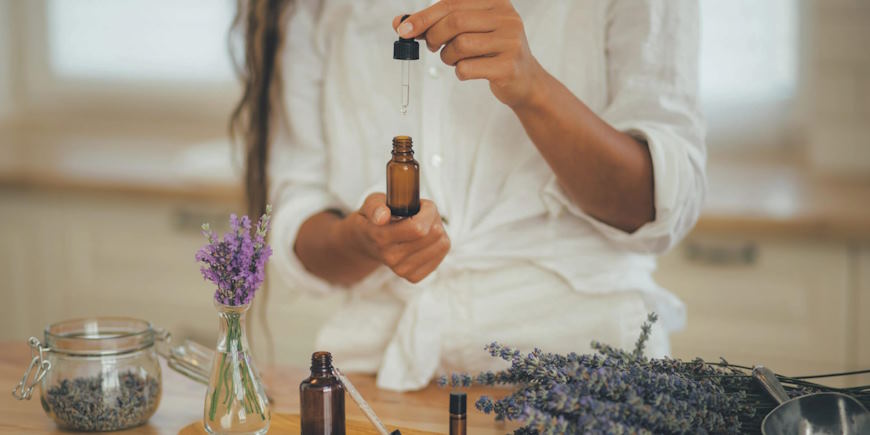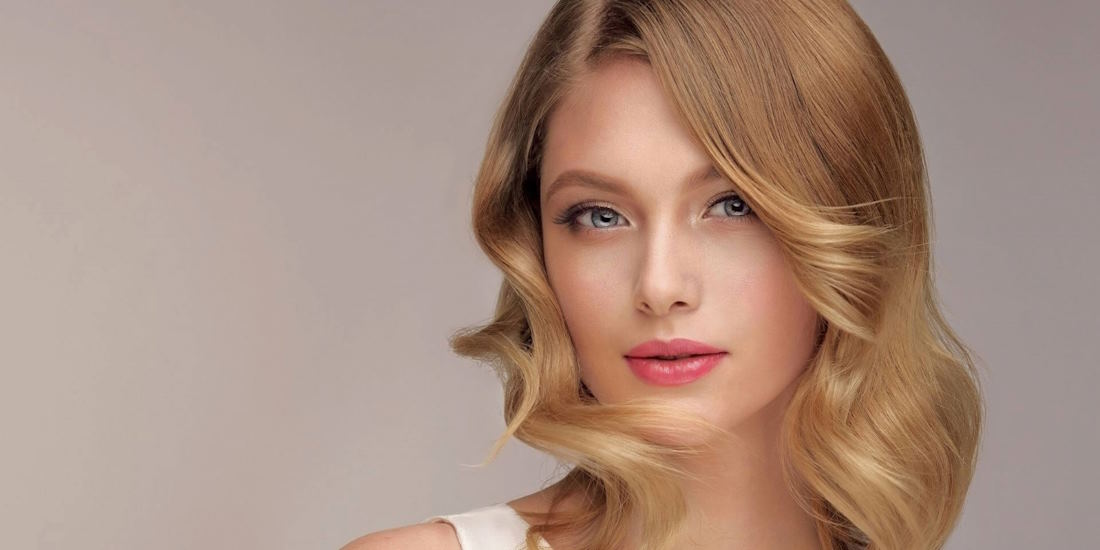Incorporating essential oils into your beauty routine is more than just a trend; it’s a natural, versatile, and effective way to enhance your skincare, haircare, and overall well-being. These potent plant extracts have been used for centuries for their therapeutic properties, offering a myriad of benefits, from soothing irritated skin to promoting hair growth and relieving stress. Whether you’re a beauty enthusiast looking to add a natural touch to your regimen or a newbie curious about the hype, essential oils can elevate your self-care routine to a new level.
What are essential oils?
Essential oils are highly concentrated extracts derived from the leaves, flowers, stems, roots, or other parts of plants. These oils capture the plant’s scent and flavor, known as its “essence,” and are obtained through processes like steam distillation or cold pressing. The resulting oils contain the natural chemicals that provide the plant’s characteristic aroma and therapeutic properties.
Essential oils have been used for centuries in various cultures for medicinal, cosmetic, and aromatic purposes. They are known for their potent properties and are commonly used in aromatherapy, skincare, haircare, and even household cleaning. Each essential oil has unique compounds that can offer a range of benefits, from soothing irritated skin to promoting relaxation and mental clarity. However, essential oils must be used with care due to their high concentration.
What essential oils are beneficial in skincare, and how?
Essential oils can be incredibly beneficial in skin care due to their potent properties. Here’s how some popular essential oils can improve your skin:
Lavender Essential Oil
Known for its soothing and anti-inflammatory properties, lavender oil can help calm irritated skin, reduce redness, and promote the healing of minor cuts and burns. Its antibacterial qualities also make it useful for acne treatment.
Tea Tree Essential Oil
Highly regarded for its antimicrobial and antiseptic properties, tea tree oil is excellent for treating acne. It can help reduce the severity of breakouts, cleanse pores, and prevent future acne without causing excessive dryness.
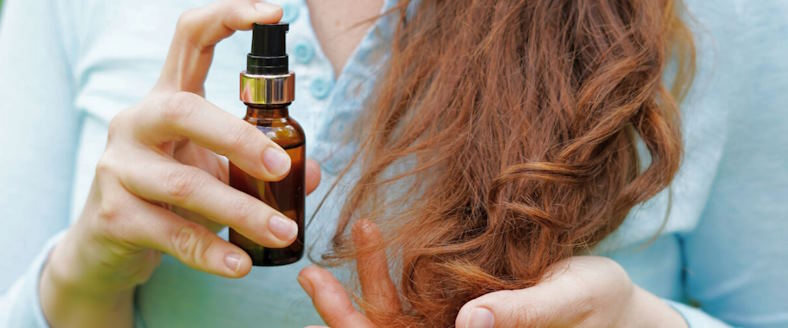
Rosehip Seed Oil
Rich in vitamins A and C, rosehip seed oil helps to brighten the skin, improve texture, and reduce the appearance of scars and fine lines. Its hydrating properties also make it suitable for dry or mature skin.
Chamomile Essential Oil
Chamomile oil has powerful anti-inflammatory and calming effects, making it ideal for sensitive or irritated skin. It can help reduce redness, soothe eczema, and alleviate dermatitis.
Frankincense Essential Oil
Known for its rejuvenating and healing properties, frankincense oil can help reduce the appearance of fine lines, scars, and sunspots. It also promotes cell regeneration and maintains skin elasticity.
Geranium Essential Oil
This oil balances oil production, making it suitable for both dry and oily skin types. It has antiseptic properties that help treat acne and can also reduce inflammation and improve skin elasticity.
Ylang Ylang Essential Oil
Ylang ylang oil helps balance sebum production, making it useful for both dry and oily skin. Its antiseptic properties also help treat acne and improve skin texture.
Rose Essential Oil
Rose oil is deeply hydrating and beneficial for dry or aging skin. It helps reduce redness and inflammation while promoting a healthy, glowing complexion.
Helichrysum Essential Oil
Often called “Immortelle” or “Everlasting,” helichrysum oil is known for its regenerative properties. It helps heal scars, acne, and other skin blemishes, promoting a healthy, even complexion.
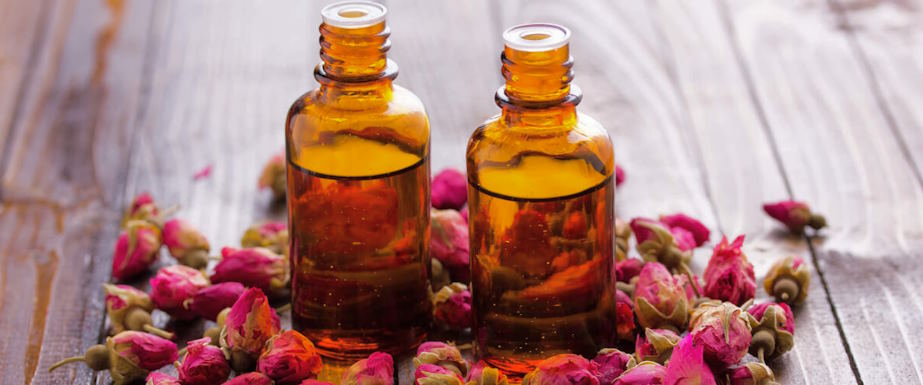
Why do people use essential oils for hair?
People use essential oils for hair due to their numerous benefits, which can address a wide range of hair and scalp issues. Here are some key reasons why essential oils are popular in hair care:
Promote Hair Growth
Certain essential oils, like rosemary and peppermint, are believed to stimulate hair follicles and improve blood circulation to the scalp, encouraging hair growth. These oils can help thicken hair and reduce hair loss.
Reduce Dandruff and Scalp Irritation
Tea tree and lavender oils have antifungal and antibacterial properties that can help combat dandruff and soothe an irritated scalp. They can also reduce flakiness, itching, and dryness, promoting a healthier scalp environment.
Strengthen and Nourish Hair
Essential oils such as argan and jojoba oil are rich in vitamins and nutrients that can strengthen hair strands, reduce breakage, and add moisture. These oils help nourish the hair, making it more resilient and less prone to damage.
Improve Hair Texture and Shine
Oils like ylang ylang and chamomile can enhance hair’s texture and appearance. They add natural shine, smoothness, and softness, giving hair a healthy, vibrant look.
Balance Oil Production
Essential oils such as geranium and cedarwood can help regulate the production of sebum, the scalp’s natural oil. It is beneficial for both oily and dry scalps, as it can prevent excessive greasiness and maintain proper moisture levels.
Reduce Frizz and Tame Flyaways
Essential oils like lavender and sandalwood can help manage frizzy hair and control flyaways. They provide a smoothing effect, making hair more manageable and less prone to frizz.
Antimicrobial Properties
The antimicrobial properties of oils like tea tree and eucalyptus help maintain a clean and healthy scalp, preventing infections and promoting overall scalp health.
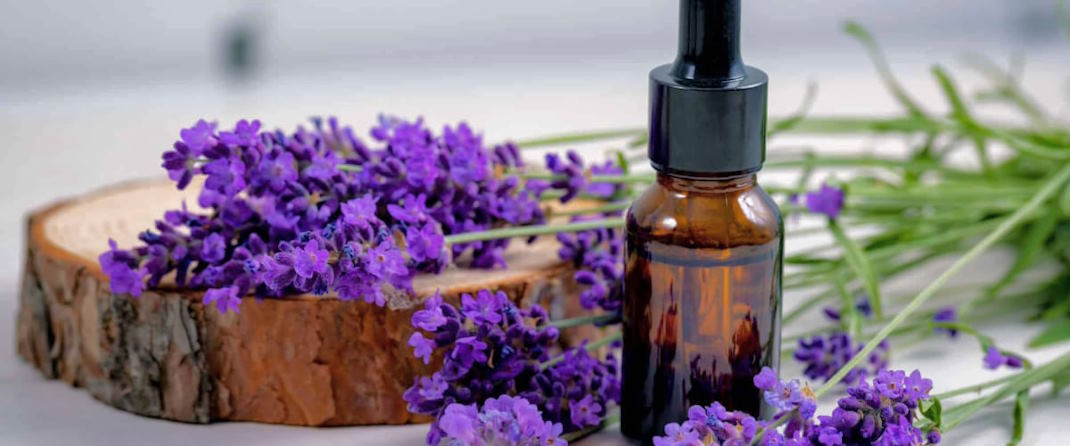
In what ways can essential oils be incorporated?
For skincare, essential oils can be added to moisturizers or serums to enhance their properties. Essential oils can also be incorporated into homemade face masks, providing an extra boost of nutrients and aromatherapy benefits during skincare treatments.
Essential oils can be used in shampoos, conditioners, and hair masks in hair care. A good idea is to use essential oils for scalp massage to enhance circulation and promote hair growth. You can also dilute essential oils and massage the mixture into the scalp for reducing dandruff, soothe irritation, and strengthen hair follicles.
Essential oils can benefit body care routines by creating custom body lotions, scrubs, and bath blends.
Can everyone use essential oils in their beauty routine?
While essential oils offer numerous benefits, they may not be suitable for everyone. Some individuals might experience allergic reactions or skin sensitivities, making it crucial to perform a patch test before full application. Pregnant or breastfeeding women, as well as individuals with certain medical conditions, should consult with a healthcare professional before using essential oils.
Additionally, proper dilution is necessary to avoid skin irritation. Essential oils should also be used with caution on children.
Most people can safely incorporate essential oils into their beauty routines by taking these precautions and understanding individual needs.

